
SAFE AT HOME: Hoboken Little League Keeps the Game Alive in the “Birthplace of Baseball”
by Christopher M. Halleron
Hoboken famously holds a prominent place in baseball’s past. On June 19, 1846, near what is now the intersection of 11th & Washington Streets, the first officially recorded game of baseball was played at Hoboken’s Elysian Fields. Though many aspects of the game’s future are currently up in the air, its present is being maintained just blocks from where that game was first played—at the Hoboken Little League Field.

“The City wanted to bring the Boys & Girls of Summer back,” said Leo Pellegrini, Director of Health & Human Services for the City of Hoboken. “It’s important because our athletes need to get back to living a healthy lifestyle and socializing with their friends.”
In early March, all sporting activities came to a screeching halt due to the rapid spread and devastating impact of COVID-19—not just in Hoboken, but worldwide. As the insidious pandemic began to work its way into every fabric of our lives, it became disappointingly clear that things we had taken for granted were going to be altered in the immediate future.
“Little League Baseball in Hoboken means many things to many people—it is historical, it is integral,” said Scott Jandora, who coaches the Hoboken Fire Department Little League team. “In many ways it is like a Springsteen song—it is truly a ‘tie that binds.’ There are guys in town who have volunteered more than one hundred hours a year for fifteen or twenty years so that the kids of summer can enjoy the game. They have names like Benny and Mas, Vic and Foley. Hoboken has a stake in the ‘Birthplace of Baseball’ claim, but more importantly the Little League is the single institution that melds kids from all over the town into a unique cohesive stew.”
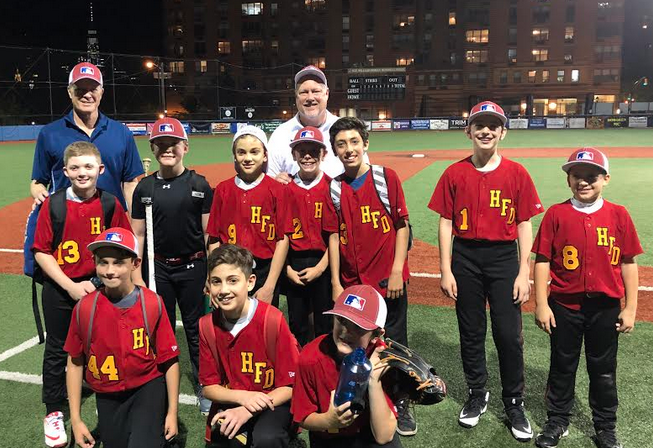
Hoboken Little League – 2019 HFD Team
Another one of those volunteer names is Cara Hilton, who saw not only the sporting impact, but the psychological strain of such a dramatic halt to life as we knew it.
“As a parent, coach, and school/child psychologist, I can deeply appreciate the adverse impact on the children from the pandemic. We are in the heart of the epicenter and our community has been hit hard. We have been faced with extraordinary stressors—extensive lockdown, social deprivation, personal losses, and a wealth of hardships over the past few months,” said Hilton, who has kids playing in the Hoboken Little League program. “The children in our community have been hit the hardest. They have been grieving the pause in youth recreation sports and everything else under the sun! Children have been forced to remain inside with only their immediate families. They have catapulted onto screens more than the norm. Parents have been juggling heightened responsibilities and stretching their duties beyond capacity working around the clock to care for their children—twenty-four hours a day, seven days a week.”
“Something had to be done,” she said.
In the face of such a stifling pandemic, how much could be done? By their nature, athletic competitions are physical activities, and social distancing is simply unachievable. Basketball seasons were cut painfully short, soccer was sidelined indefinitely, and a game like lacrosse was simply impossible.
But baseball is different.
“The season began like many others in February—winter workouts, then try-outs, and then the draft,” said Jandora. Hoboken Little League holds tryouts and then assigns players to teams via a draft system, in an effort to maintain parity.

“It came to a screeching stop at the beginning of March with the outbreak of COVID and the subsequent shelter-in-place order. The Coaches hunkered down like the rest of America, but kept working,” said Jandora. “While Dr. Fauci was showing us how to wash our hands again, the Coaches were trying to figure out what the season would look like once we got out. Weeks went by. Our friends and family got sick. Some died. As the press conferences worsened, interest waned but the flame never died.”
Hilton recalls, “So many questions ran through our minds. Can the children really sprint bases while wearing masks? Are we putting children at risk when sharing baseballs through a game of catch? Where will we get enough disinfectant and sanitizer and will we run out? Can we realistically enforce social distancing with children as young as eight years old? Can everyone afford masks and gloves, and if not, will we be able to provide these essentials? Will parents trust us enough to care for their children and feel comfortable with a quick drop and go?”
What seemed like distant details eventually became immediate concerns, as denizens of the New York Metro Area began to cautiously poke their heads out and survey the landscape. Authorities regionwide sought to explore the tentative process of gradually reestablishing societal norms. In Hoboken, New Jersey, USA, that meant bringing back baseball.

“The guidance given by the State, as it relates to organize sports, was no physical activity would take place. This means that competitions or games were not to be played,” said Pellegrini “We are also late in the baseball season and the sanctioned leagues such as Little League and RBI cancelled their respective seasons. Therefore, the traditional baseball season as most towns in the country during the Spring and Summer months was cancelled. Since recreation facilities were approved for opening the Recreation Department and Little League organizers want to salvage some kind of season by allowing clinics in a very controlled environment.”
The logistics of reengaging baseball within these new parameters were daunting, to say the least. It meant abandoning an existing League structure and starting from scratch. That’s no small feat in the Birthplace of Baseball.
“We started with a vision and the brainstorming followed,” said Hilton. “Throughout the process, we kept saying to ourselves and assuring each other that, ‘it is still worth the effort, even if nothing ever comes to fruition. At least we know that we tried!’ It was astounding to watch our dedicated leaders in the baseball community band together. We continuously discussed a realistic and safe strategic plan, crafted a hefty proposal, and swiftly moved into action.”

According to Jandora, “A group emerged among the Coaches in April—those who thought that while a regular season was becoming less likely, having baseball in some form was a necessity for the community of Hoboken. Kids would need to come out from behind the video game console. Parents would need to reclaim a few minutes each week away from their children. To make this happen, the Coaches realized they would need to follow the rules set out in the daily press conferences from the Governor and the Mayor.”
New York City and adjacent Hudson County, New Jersey were among the hardest hit regions in the world, as COVID overran the hospitals, morgues and governmental systems of the entire Metro New York area. As share of mind was fully consumed by the immediate COVID response, coaches and organizers knew they’d need to have their game plan firmly established before anyone would even entertain the notion of developing an athletic program in the midst of all the trauma.
“The Coaches quickly developed a checklist of directives from Trenton if we were to proceed—a handbook of hygiene and social distancing in the pandemic era. We were guided by several unwavering principles—we needed to create an environment that was safe for both kids and coaches, and we needed to do so in a fashion that all kids who had signed up for Little League could participate,” said Jandora.

If there was one consistent truth in the Spring of 2020, it was that everyone had developed an opinion on everything. Finding a consensus in such a fluid and philosophically divergent environment was not easy.
“The Coaches had more than a few things working against them. There was a group of parents and coaches who just wanted the ‘kids to play ball’ (even though we were not allowed), and an equal size group that wanted to continue to hunker down. The Coaches also had to deal with the unique situation of Hoboken’s location as an epicenter of the epicenter,” said Jandora.
Hoboken sits on the west bank of the Hudson, directly across the river from Manhattan. Sitting in the bleachers at the Hoboken Little League Field, spectators take in world-class views of the Empire State Building and One World Trade Center. As our frontline workers fought valiantly to save lives in our densely populated region, these iconic images of Americana had suddenly become symbolic of the country’s struggle against COVID-19.
“My own immediate family was strictly following all of the safety guidelines set forth by our local officials. We were socially isolating… hardcore,” said Hilton. “Here I am asking families to allow their children to come together, while we are asked to remain apart. It weighed on me quite a bit. However, the pros of hosting the program kept outweighing the cons. The children desperately needed socialization, fresh air, movement, and normalcy.”
With summer’s rapid approach, case numbers began to curve downward. By Memorial Day, States and Municipalities began to unveil their plans to readjust after a months-long quarantine. For the Hoboken Little League, that meant it was time to make a move.
“The result of this effort was a plan that rivaled Eisenhower’s D-Day—and coincidently, was scheduled to start on the 75th anniversary of that day,” said Jandora. “The Coaches realized they had to win the support of both the City and the parents. The plan made it abundantly clear that ‘Safety was job number 1.”
Although relatively distant compared to other sports, baseball is still very much a hands-on game. Pitching, throwing, catching, batting—all of these elements of baseball needed to be altered for a COVID-mindset. The result was a hyper-organized, highly scrutinized, meticulously maintained program that ultimately succeeded in seeing the sport of baseball come back to life—right here in the town where it all began.

“They were able to plan clinics to include social distancing, incorporating station-by-station drills that limit the number of players per drill by rotation,” said Pellegrini.
“Small area workshops with one coach for every four or five kids,” said Jandora. “The City had its own list of requirements—and through an iterative process we checked them off one by one. Everyone has to wear masks and gloves on both hands, and has to be sanitized upon entering and exiting the field. Five weeks after the initial meetings, the Coaches finally had a plan that dotted all the ‘i’s’, and we were ready to roll.”
Said Hilton, “I will never forget the moment when I heard that the local municipality approved the plan. I nearly dropped the phone. It was all worth it. We did it—we did it for the children; we did it for our community.”
The roars are now muted to an occasional yell. There’s no stadium announcer, no umpires to argue with, no parents in the stands heckling the umps. There are no inside pitches, hard slides, and precious few diving catches. But there’s baseball—and baseball is enough.
“We are in the second week of the ‘Clinic,’ as we now call it, and our conclusions really validate some of our early concerns,” said Jandora. “Though none of us are doctors, as coaches we can see how much the pandemic has affected the health and well-being of the kids. They are winded running to first base. Even the best athletes initially had problems accurately throwing the ball from short distances. The younger kids—eight and nine year olds—seemed worse off than the older kids, and the girls seemed to weather the storm better than the boys. Cue the ‘girl power’ cheers.”
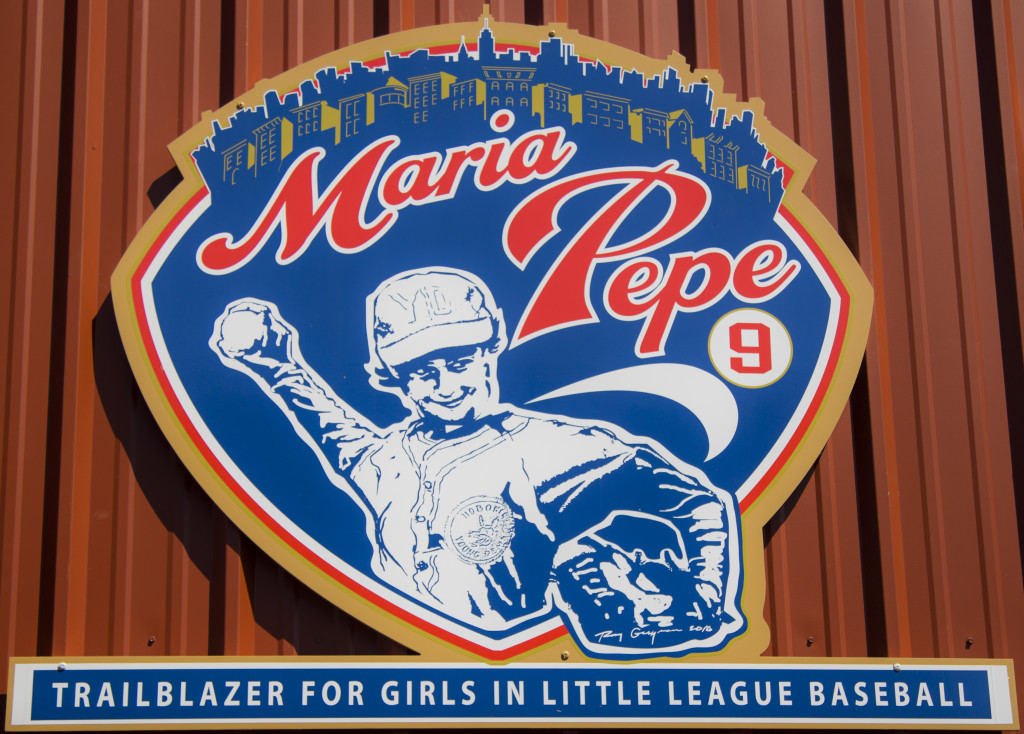
Chris Capaci/Capacity Images photo
Of course that field is no stranger to “girl power,” as it was Hoboken’s Maria Pepe who broke down baseball’s gender barrier in 1972, becoming the one of the first female players in Little League baseball. The controversy over her playing sparked a series of lawsuits that paved the way for girls in Little League baseball and blazed a trail for women’s sports in general. The batting cages at the Hoboken Little League Field are named in Pepe’s honor—further testament to this small city’s ongoing impact to our national pastime.
“Has it been a success so far? The Coaches think so,” says Jandora, of their efforts to salvage some semblance of a 2020 Season. “But what do we know? We just want the kids to play ball.”
During a period when none of us had very much to look forward to, a group of individuals stayed focused on their objective to teach our kids the game they love.
“It took a little faith, many hours of planning, a ton of work, and a few gray hairs, but we never gave up,” said Hilton. “We knew deep down that we could do it! We opened our arms, stretched out our hearts, and thanks to our strong force of dedicated leaders, we made it all happen.”
“We ‘rebirthed’ baseball again in Hoboken, at a time in history that will never be forgotten.”
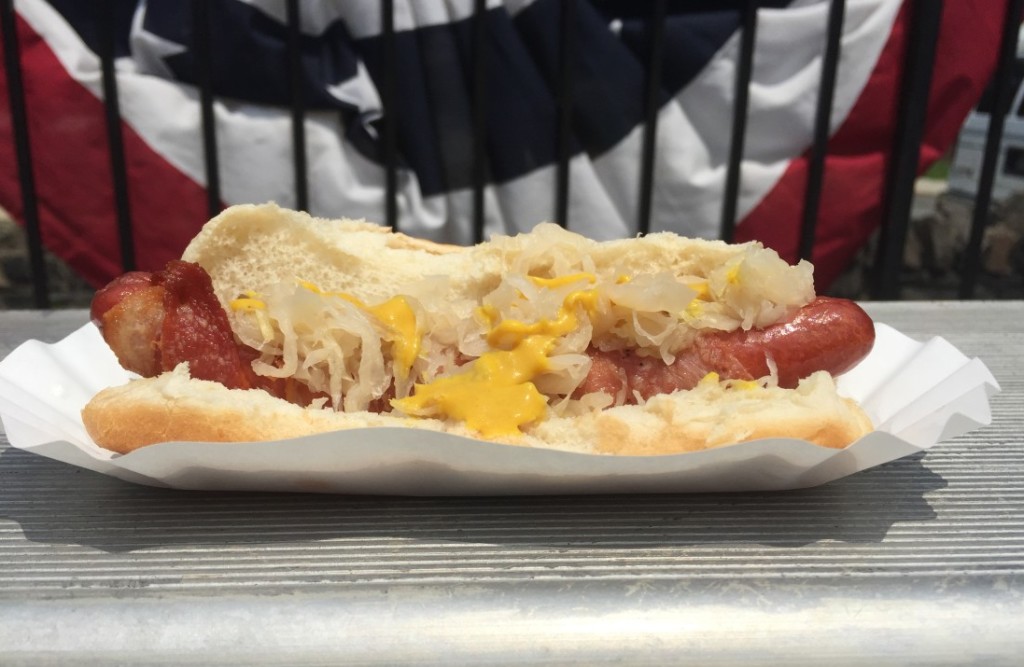
Stop by the Hoboken Little League Field House for “The Love Dog”—bacon-wrapped deep-fried hot dog with mustard & sauerkraut…
***
AUTHOR’S NOTE: My son has played for Scott Jandora for years on HFD. I’m truly grateful for the efforts of all involved in getting the kids back out there.

 Previous Article
Previous Article Next Article
Next Article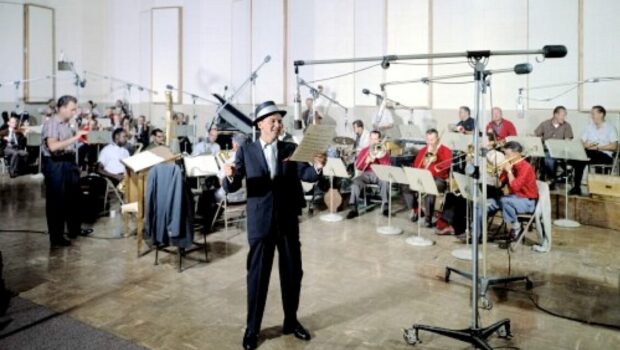 FRIDAYS ARE FOR FRANK: “It’s Only A Paper Moon”
FRIDAYS ARE FOR FRANK: “It’s Only A Paper Moon” 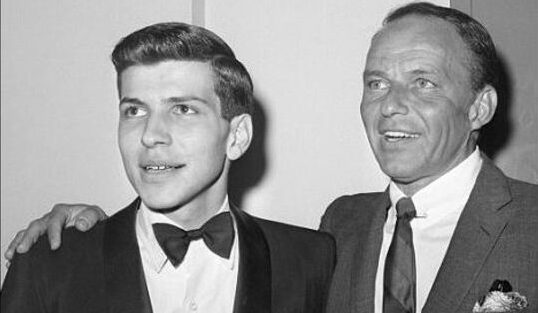 FRIDAYS ARE FOR FRANK: “My Kind Of Town” (featuring Frank Sinatra, Jr.) — Father’s Day Edition
FRIDAYS ARE FOR FRANK: “My Kind Of Town” (featuring Frank Sinatra, Jr.) — Father’s Day Edition  FRIDAYS ARE FOR FRANK: “Roses of Picardy” — Reflecting Upon World War I
FRIDAYS ARE FOR FRANK: “Roses of Picardy” — Reflecting Upon World War I 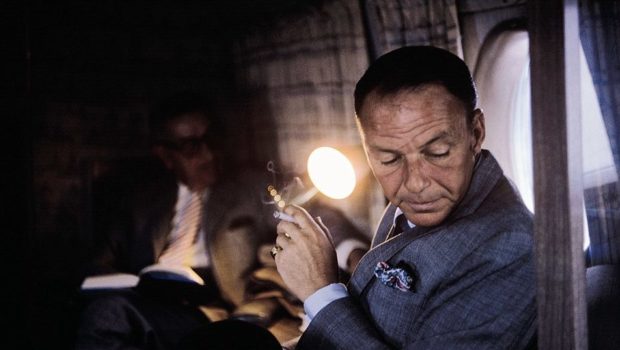 FRIDAYS ARE FOR FRANK: “Old Devil Moon”
FRIDAYS ARE FOR FRANK: “Old Devil Moon” 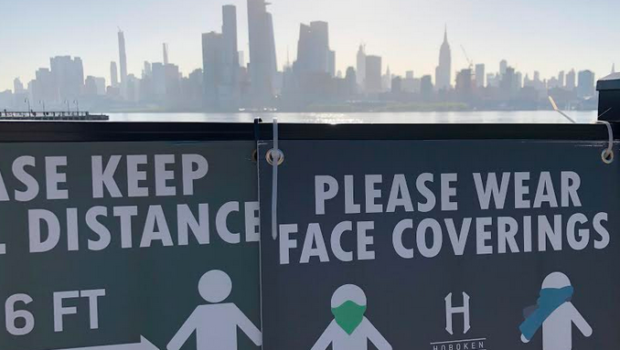 Hoboken Historical Museum Launches COVID-19 Archive Project
Hoboken Historical Museum Launches COVID-19 Archive Project  Port of Entry to a Continent
Port of Entry to a Continent 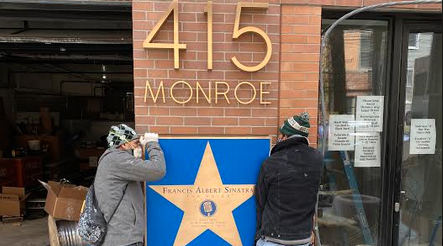 FRIDAYS ARE FOR FRANK: “Swinging On A Star” | Sinatra Memorial Returns to 415 Monroe Street
FRIDAYS ARE FOR FRANK: “Swinging On A Star” | Sinatra Memorial Returns to 415 Monroe Street  Meat & Greet: Piccolo’s – “Famous for Cheesesteaks” for 60 Years
Meat & Greet: Piccolo’s – “Famous for Cheesesteaks” for 60 Years